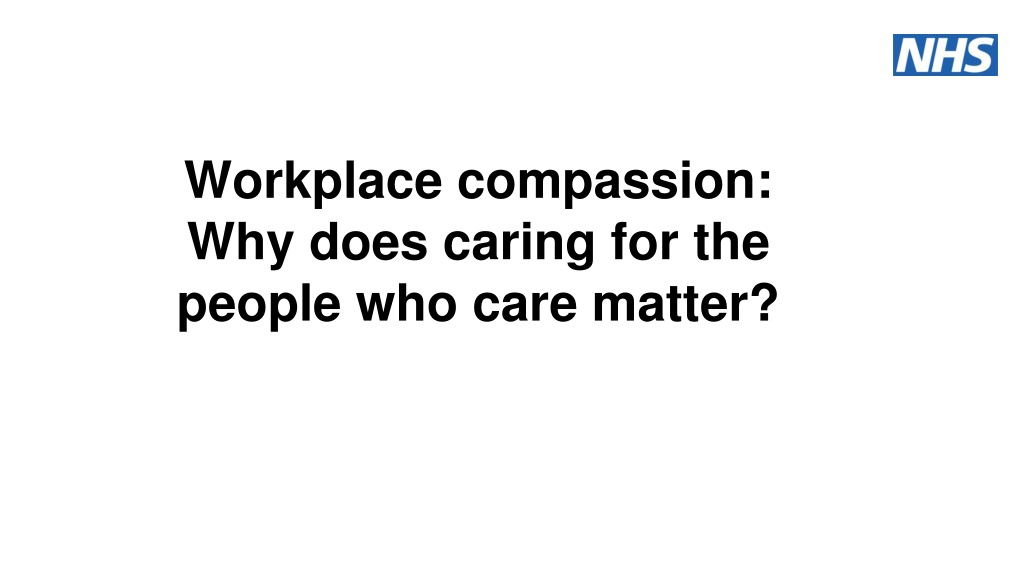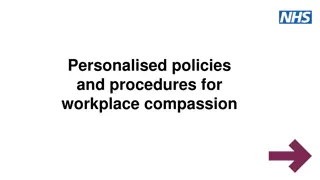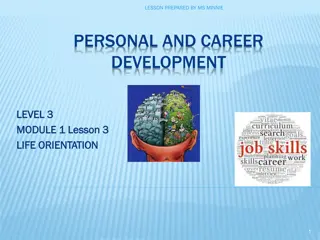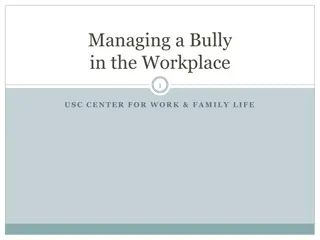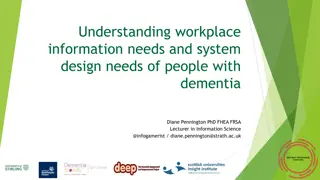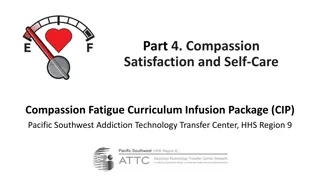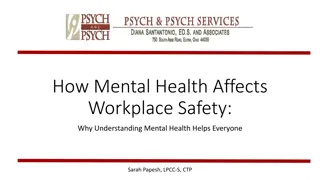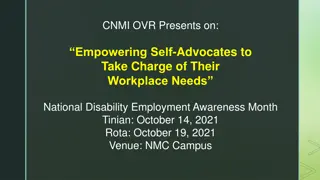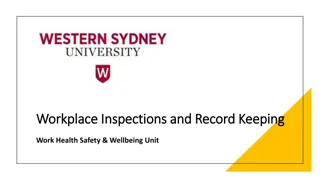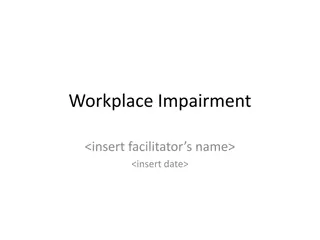The Importance of Workplace Compassion in Healthcare
Caring for the people who care is crucial in healthcare settings like the NHS. High demands on staff can lead to stress, burnout, and even illness. Prioritizing staff well-being not only benefits the employees themselves but also improves patient care outcomes. Addressing issues like staff mental health, stress, and burnout is essential for sustaining a compassionate and effective healthcare system.
Download Presentation

Please find below an Image/Link to download the presentation.
The content on the website is provided AS IS for your information and personal use only. It may not be sold, licensed, or shared on other websites without obtaining consent from the author. Download presentation by click this link. If you encounter any issues during the download, it is possible that the publisher has removed the file from their server.
E N D
Presentation Transcript
Workplace compassion: Why does caring for the people who care matter? www.england.nhs.uk
Experiences of care - the reality High quality patient experience cannot be achieved - ethically or sustainably - at the expense of staff www.england.nhs.uk
NHS context NHS serves more than 52 million people Around 1.3 million staff members 54% of staff professionally clinically qualified The NHS deals with over 1 million patients every 36 hours 13% of all people in employment in the UK work in healthcare. https://www.nhsconfed.org/resources/key-statistics-on-the- nhs www.england.nhs.uk
So how are NHS staff feeling? More than 60% of NHS staff in England report having recently attended work despite not feeling well enough to perform their duties (Boorman, 2009) Poor mental health = of staff absences (Boorman, 2009) Self-reported stress affects around 1/4 of NHS employees (NHS Employers 2014). Death by suicide is highest amongst the caring professions (Meltzer et al, 2008). NHS staff are all more prone to work-related illness (CIPD, 2013). Stress and mental health issues have overtaken musculoskeletal disorders as the main reason for sickness absence (NHS Employers 2014). www.england.nhs.uk
A critical issue NHS staff are more likely than the rest of the working population to become patients (Michael West, 2016) www.england.nhs.uk
Balancing two global phenomena Staff Stress Burnout Bullying Compassion fatigue Patients Growing demand Intensity Acuity Compassion www.england.nhs.uk
Put simply.two sides, one coin www.england.nhs.uk
Higher priority for experiences of staff It is becoming critical that we do all we can to look after staff better than we have ever done before, both for their own and their patients health and well being. 10
Wide range of measures to support health and wellbeing and Special attention is needed to the importance and significance of compassionate workplaces. Consistently thoughtful, caring and empathetic towards one another. A wide examples and case studies about this in the NHS England guide
Experiences of care for all Health is all about people. Beyond the glittering surface of modern technology, the core space of every health care system is occupied by the unique encounter between one set of people who need services and another who have been entrusted to deliver them. Frenk et al. (2010) www.england.nhs.uk
Our definition of workplace compassion Workplace compassion is evidenced in the interactions between people in the workplace, the manner in which people interact with each other at work, (and the associated expectations of, and responses to, that interaction) and the culture this gives rise to. Workplace compassion is experienced by staff as a result of the thoughtful, caring, and empathetic actions of others. www.england.nhs.uk
National calls to action We must show the same care and consideration to ourselves and our colleagues, as we do to those we serve... providing an appropriate culture, terms and conditions will mean we gain the most from our staff. NHS England (2016) Sustained compassion needs time and space to flourish and to safeguard against burn out. Doctors show significant compassion to our patients, but we also need to be shown compassion ourselves. Healthcare organisations must show compassion to their teams and staff - the NHS must develop a culture of compassion. Trimble (2017) www.england.nhs.uk
Your call to action Everyone can take action now, today, to create a more compassionate workplace for themselves and for others. NHS England (2018) Towards commissioning for workplace compassion: a support guide www.england.nhs.uk
Your compassionate actions Table Discussion: What practical steps can you personally take straight away - today - to support positive staff experience/compassionate workplaces in your own teams/services/organisations? www.england.nhs.uk
